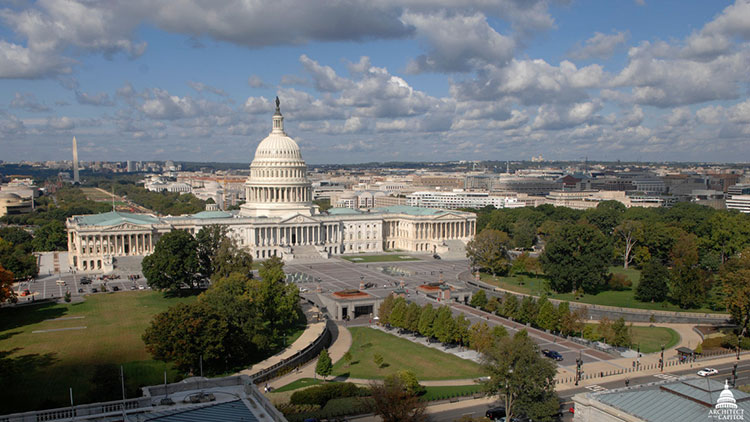House Digs Into Broadband Infrastructure

The smarter way to stay on top of broadcasting and cable industry. Sign up below
You are now subscribed
Your newsletter sign-up was successful
The House Communications Subcommittee did a deep dive on broadband infrastructure Tuesday.
At issue were a couple of bills already in the works and the broader proposals for massive general infrastructure bills that will almost certainly include broadband.
The bills are a discussion draft of legislation to "facilitate the deployment of communications infrastructure" and the "Broadband Conduit Deployment Act of 2017."
At the almost three-and-a-half-hour hearing, presided over by chairman Marsha Blackburn (R-Tenn.), the political as well as digital divide was much in evidence. Republicans focused primarily on getting broadband to unserved areas, while Democrats included underserved and focused on price and speed as well as availability as a barrier.
Rural access was a particular focus, as was how the government can make it easier to deploy both wired and wireless broadband by making it easier to site towers, get rights of way, and accommodate new technologies under old rules.
"If we want to deploy broadband networks that will support 5G, we cannot wait to address broadband infrastructure challenges until 2020 or later," said witness Steven K. Berry of the Competitive [wireless] Carriers Association.
Blackburn said that she was tired of hearing stories about parents driving their children to McDonald's so they could use the hot spot to do their homework. "We owe them better," she said, "period." She also talked about the 5G "revolution," and the need to ease tower siting.
The smarter way to stay on top of broadcasting and cable industry. Sign up below
Both Democrats and Republicans agreed that the government needs to update its broadband maps—last updated in 2014—to better determine where broadband currently exists. "We must accurately collect and aggregate data to update the National Broadband Map," Blackburn said.
But she said it was imperative to fix them so that private investment and government money would be targeted to "unserved" areas. "People want broadband as much as new roads," she said.
On the other side, ranking member Mike Doyle (D-Pa.) emphasized barriers to access, including speed and price, as part of the infrastructure issue.
"Far too many people in this country either have no access, limited access, or overpriced access," he said. "[F]ar too many American’s don’t have the type of connectivity they want or need, and certainly in many parts of the country the free market has failed to close these gaps."
He said the draft bills are fine as far as they go, but there are other issues, including competition. "[T]he FCC found that eighty-two percent of the country has only one provider to choose from for high speed broadband. With numbers like that, if we were talking about health care Republican’s would be fighting to repeal and replace internet service in this country."
Rep. Frank Pallone (D-N.J.), ranking member of the parent Energy & Commerce Committee, agreed that the bills would only get them so far, and not as far if the Republicans had not reworked one of them without prior consultation.
Both he and Doyle also said tax credits won't be enough to get broadband built out to where there is little business case.
President Donald Trump plans a trillion dollar infrastructure package that will almost certainly include broadband, though NCTA: The Internet & Television Association president Michael Powell has pointed out that while bridges and roads maybe crumbling, broadband plant has been constantly upgraded thanks primarily to private investment.
“We are pleased that the subcommittee is examining the barriers to deploying communications infrastructure and exploring funding options that invest in a connected future for all Americans," said Telecommunications Industry Association senior VP for government affairs Cinnamon Rogers following the hearing. "To meet the growing demand for affordable, reliable, high-speed connectivity, and to realize the full potential of the Internet of Things, the U.S. must enable mechanisms for direct funding, tax-credits and public-private partnerships aimed at investment in broadband infrastructure, improved access to government-owned infrastructure, and streamlined policies for build out."
Contributing editor John Eggerton has been an editor and/or writer on media regulation, legislation and policy for over four decades, including covering the FCC, FTC, Congress, the major media trade associations, and the federal courts. In addition to Multichannel News and Broadcasting + Cable, his work has appeared in Radio World, TV Technology, TV Fax, This Week in Consumer Electronics, Variety and the Encyclopedia Britannica.

